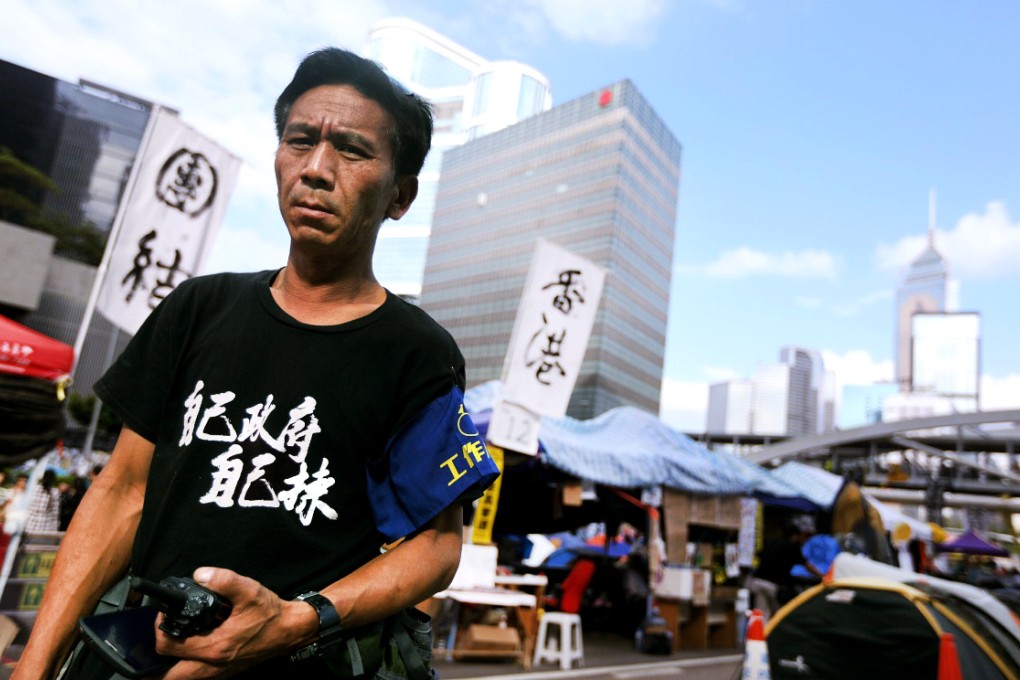Occupy Central marshals keep an eye over Hong Kong’s democracy protesters
Volunteers have come up against police, triads, anti-Occupy groups - and now face a battle to maintain unity among increasingly divided protesters.

When Hong Kong police fired the first round of tear gas at pro-democracy protesters on September 28, the head of Occupy Central’s marshal team, Alex Kwok Siu-kit, was not panicked.

From jumping into the icy waters of Victoria Harbour that year after farmers tried to swim around a security cordon, to holding off Occupy opponents from attacking protesters last month, the 50-year-old has seen a lot and is fazed by little.
But now Kwok says he is facing one of his biggest challenges – maintaining unity among the divided civil disobedience protesters themselves.
“The marshals have it really tough. They don’t even dare to put on their marshal armbands because some people have tried to disunite us,” says Kwok, his walkie-talkie buzzing now and again.
Kwok leads a team run by the Occupy Central group, one of the main organisers of the protests which have been primarily led by student groups.